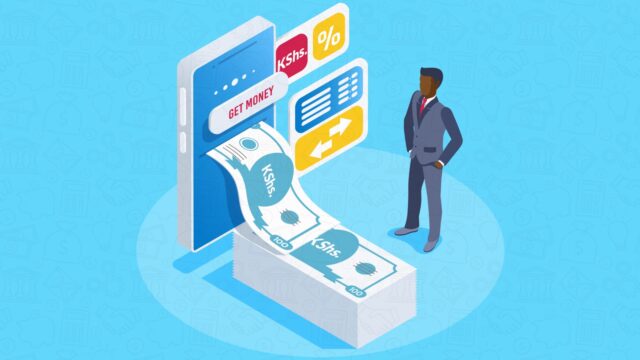CBK approves 10 mobile loans apps under new regulations to protect consumers
The Central Bank of Kenya has given operating permits to 10 mobile lenders.

Mobile loan borrowers can now sigh with relief after 10 new mobile lenders met the Central Bank of Kenya’s requirements meant to protect them. The new entrants in the mobile loan Apps sphere are among the first Digital Credit Providers (DCPs) to receive operating permits from the Central Bank of Kenya (CBK).
Popular loan Apps ̶ Tala, Branch and 4G Capital ̶ are, however, missing from CBK’s initial list of those licensed to operate in the country. However, the regulator said that the vetting process continues for those that complied with the September 17 application deadline.
Under the new regulations, hidden charges and interests charged will no longer shock customers or catch them by surprise because mobile loan Apps are now required to disclose the total charges for their loans, including interest rates, late payment and rollover fees, before disbursing credit to consumers. Customers should also expect better services and stronger customer protection laws.
“So far, 10 applicants have now been licensed as DCPs, under the Central Bank of Kenya Act and the Regulations. Other applicants are at different stages in this process, largely awaiting the submission of requisite documentation. We urge these applicants to submit the pending documentation expeditiously to enable completion of the review of their applications,” the regulator stated in a statement.
“All other unregulated DCPs that did not apply for licensing must cease from conducting credit business,” CBK added.
For long, the digital lending space remained unregulated and saw DCPs mushrooming left, right and centre with many violating consumer privacy and charging undisclosed exorbitant interest rates. In December 2021, the government approved a change in the law that allowed CBK to regulate digital lenders, a move that gave the regulator power to rein in lenders who violate consumer privacy.
Under the new law, the DCPs are supposed to furnish the regulator with a Certificate of Incorporation, Memorandum and Articles of Association of the applicant and any significant shareholder. Directors, Chief Executive, Senior Officers and significant shareholders would also undergo a fit and proper test from the regulator who also required disclosure of the source of funds and pricing models. Also, CBK was given powers to revoke firms’ licenses that send information about loan defaulters to third parties in name-and-shame tactics meant to recover the money.
The 10 applicants that made it to the initial list, out of 288 that had applied, are Ceres Tech Ltd, Getcash Capital Ltd, Giando Africa Ltd (Trading as Fresh Credit Africa), Jijenge Credit Ltd, Kweli Smart Solutions Ltd, Mwanzo Credit Ltd, MyWagepay Ltd, Rewot Ciro Ltd, Sevi Innovation Ltd, and Sokohela Ltd.
Missing from the list is a popular digital lender, Tala, however, the lender reassured its customers that it had submitted its application for the requisite license ahead of the September 17 deadline, and it was working with the regulator with regard to its application.
“In accordance with the provisions of the Central Bank of Kenya (CBK) Amendment Act, 2021 and the Central Bank of Kenya (Digital Credit Providers) Regulations, 2021, Tala shall continue to operate as a digital credit provider pending issuance of our license by the CBK,” Tala said in a statement.
The popular mobile loan app added that it is committed to serving customers in accordance with the applicable regulations and working with the CBK pending issuance of a licence. “We further understand that the CBK will continue to share details of the licensed DCPs every week until the process is complete,” the mobile lender added.
In May, a report from the International Association for Mobile Network Operators GSMA showed that 36 percent of Kenyans acquired loans through their mobile phones in 2021. This signals the popularity of mobile loans as well as the growth of credit providers, including banks and alternative lenders expanding in the consumer loans sector. These include MShwari, Fuliza and KCB-MPESA which are regulated under banks.
“Nearly four in 10 Kenyans used mobile money to get a loan, the highest number globally. There is generally higher uptake of loans in markets with a higher prevalence of mobile money, particularly Kenya (36 percent). India (18 percent) and Pakistan (16 percent) are the exceptions – although both countries have low to medium mobile money prevalence, uptake of loans is still relatively high,” the report read in part.
CBK estimates that there are more than 100 unregulated digital lenders that lack transparency in pricing, mine personal data and use aggressive debt collection methods. Similarly, most mobile loan takers are oblivious to the conditions that include a lifetime of SMS notifications, full surrenders of their data to third parties and waiver of their right to dignity.
With the lack of regulations, customers’ privacy was never guaranteed as these digital credit providers haphazardly shared user data with third parties. With the regulations, such violations will be a thing of the past. Lenders will not have to suffer the embarrassment of their credit status being revealed to their contacts via SMS and the risk their personal data faces in the hands of unknown third parties.
